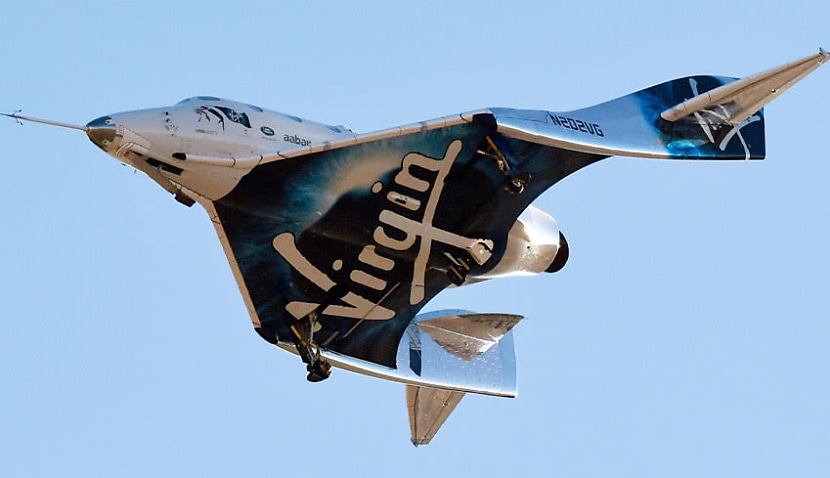
The business said it plans to fly monthly and is targeting another service as soon as September.
It comes as rival space tourism provider Blue Origin, helmed by Amazon’s Jeff Bezos, was forced to pause blast-offs following a failure on a payload flight in September last year.
However, Galactic is now celebrating the successful completion of its third spaceflight in 2023 and seventh overall.
The new service carried private astronauts Jon Goodwin from the United Kingdom and Keisha Schahaff and Anastatia Mayers from Antigua and Barbuda.
Galactic’s chief executive officer, Michael Colglazier, said, “Jon, Keisha, and Ana each embody our fundamental belief that space is for everyone, and we are proud that today’s flight has inspired people and communities around the world.
“This is just the beginning, as we plan to continue flying monthly spaceflights while also developing our Delta Class production spaceships to scale our business.”
The business said the flight marked a number of milestones, including the first mother-daughter duo to go to space and the first female astronauts from the Caribbean.
Kelly Laimer, a pilot on VSS Unity, said “nothing tops” the experience.
“Going to space today fulfilled an ambition I’ve had since I was a child. It is a privilege to be part of a majority-women crew making history as the most female astronauts flying to space in a single mission.”
The first private commercial mission came two years after founder Richard Branson beat off competition from Jeff Bezos to go to space in Galactic’s fourth crewed spaceflight.
Yet, Virgin then subsequently had to carry out maintenance for both its mothership aircraft, VMS Eve, and its SpaceShipTwo vehicle after Branson’s test flight. It resumed flights earlier this year.
The good news comes months after sister company Virgin Orbit admitted defeat in its battle to find a rescue deal and said it would cease all operations. It had been hoping to launch from Toowoomba in Queensland next year.
Virgin Orbit agreed to sell all of its assets, including its rocket-launching 747, to four winning bidders for just $36 million – barely 1 per cent of the company’s valuation in 2021.
Its demise followed the failure of its landmark launch in Cornwall, south-west England, failing in January. It had been targeting future launches in multiple countries, including Australia.
ELA executive chairman Michael Jones told Space Connect he believes Virgin Orbit’s system of launching rockets was not as reliable as it seemed.
Jones, who is also the founder of Australian airline Rex, said there’s “a lot of complexity that doesn’t appear to be there” and hinted traditional vertical blast-offs are more successful.
“It sounds great, but it’s a challenging thing they’re doing,” he said.
“We track about 76 rocket companies globally. That’s a mixture of vertical, which is about 90 per cent of the market, and horizontal, which is a further 7 per cent. I think about 25 of those are ‘real’.
“And by that, I mean real in their financial capacity, technology, and having a business plan for a successful solution.” Of the 25 remaining in his system, he predicts only 11 will survive.

Adam Thorn
Adam is a journalist who has worked for more than 40 prestigious media brands in the UK and Australia. Since 2005, his varied career has included stints as a reporter, copy editor, feature writer and editor for publications as diverse as Fleet Street newspaper The Sunday Times, fashion bible Jones, media and marketing website Mumbrella as well as lifestyle magazines such as GQ, Woman’s Weekly, Men’s Health and Loaded. He joined Momentum Media in early 2020 and currently writes for Australian Aviation and World of Aviation.
Receive the latest developments and updates on Australia’s space industry direct to your inbox. Subscribe today to Space Connect here.









